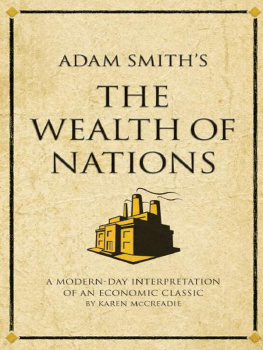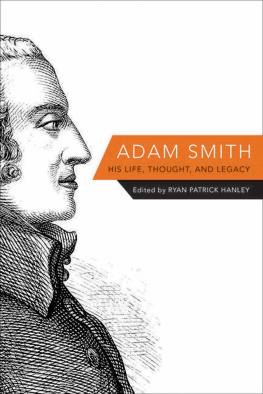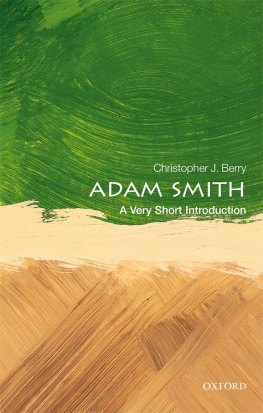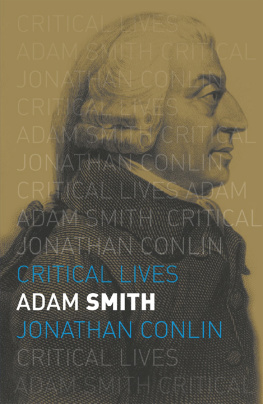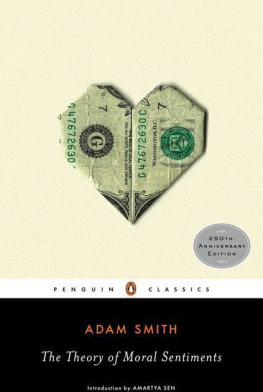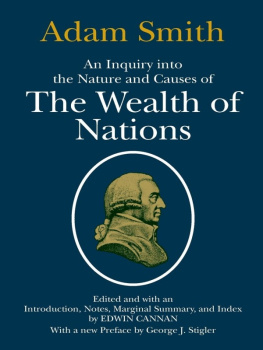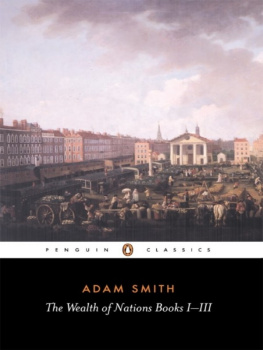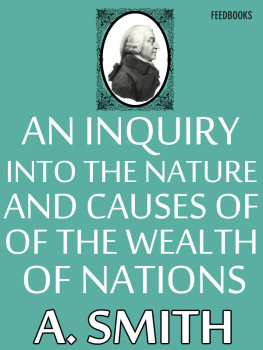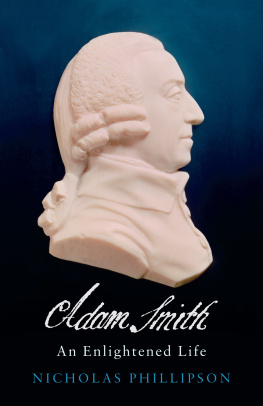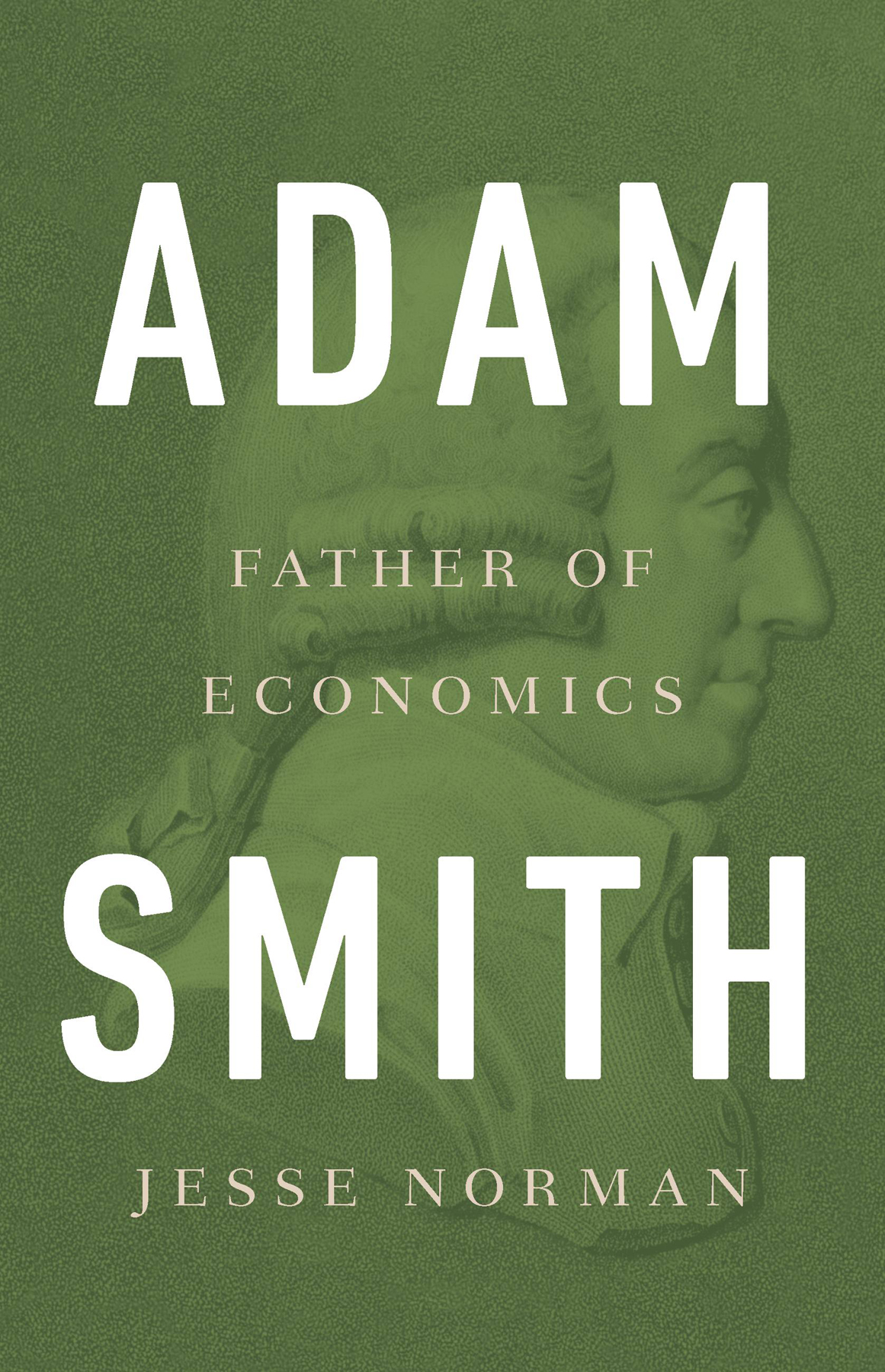. Margaret Douglas by Conrad Metz, 1778. (Fife Cultural Trust/Kirkcaldy Galleries on behalf of Fife Council)
. Francis Hutcheson by Allan Ramsay c. 1745. (Copyright The Hunterian, University of Glasgow)
. David Hume by Allan Ramsay, 1766. (National Galleries Scotland)
. Detail from Fif Vicecomitatus, Johannes Blaeu, Theatrum Orbis Terrarum Sive Atlas Novus, 1654. (National Library of Scotland)
. Detail from View of Edinburgh from Arthurs Seat, Wenceslaus Hollar, 1670. (National Galleries Scotland)
. Prince Charles Edward Stuart by Allan Ramsay, c. 1745. (National Galleries Scotland)
. Henry Scott, Third Duke of Buccleuch, by Thomas Gainsborough, 1771. (Buccleuch Collection, by kind permission of the Duke of Buccleuch and Queensberry KT KBE)
. Edmund Burke by Joshua Reynolds, c. 1769. (National Portrait Gallery 655)
. Jean-Jacques Rousseau by Allan Ramsay, 1766. (National Galleries Scotland)
. Statue of Adam Smith by Alexander Stoddart, 2008. (Realy Easy Star/Giuseppe Masci/Alamy)
. Statue of David Hume by Alexander Stoddart, 1995. (Chris Dorney/ Alamy)
. John Maynard Keynes and Henry Morgenthau at Bretton Woods, New Hampshire, July 1944. (Alfred Eisenstaedt/Time/Getty)
. Kenneth Arrow carrying his Nobel prize, Stockholm 1972. (AP/REX/Shutterstock)
. Adam Smith medallion by James Tassie, 1787. (National Galleries of Scotland)
. Back of a 20 banknote. (Copyright The Governor and the Company of the Bank of England, 2006)
Adam, Adam, Adam Smith
Listen what I charged you with!
Didnt you say
In the class one day
That selfishness was bound to pay?
Of all your Doctrines, that was the Pith,
Wasnt it, wasnt it, wasnt it, Smith?
Stephen Leacock
(humorist and Professor of Political Economy), Hellements of Hickonomics, 1936
of human value, an apologist for wealth and inequality and human selfishnessand a misogynist to boot.
of 299 academic economists in 2011, Smith came first by a huge margin, with 221 citations vs. 134 for Keynes, the rest all following after. Nor is Smiths academic reputation confined to economists: a detailed study of references on JSTOR, a comprehensive database of largely English-language journals, between 1930 and 2005 showed Smith to be by far the most heavily cited of the economic greats. His latest recorded total was higher than those of Marx, Marshall and Keynes combined, and more than three times as high as that of any modern economist.
, Eugene Onegin studied him; his face stares impassively across the face of the British 20 banknote.
that hard to believebecause the Scots invented Thatcherism, long before I was thought of. Tracing the roots of her political beliefs to the works of Smith, Ferguson and Hume, she laid out a view of a world in which wealth would be generated and spread ever more widely and wise Government [stood by to] harness the efforts of individuals to improve the well-being of the whole community.
pondered in his speech to what extent the Chancellors renowned economic and financial skills are the result of exposure to the subliminal intellect-enhancing emanations of this area. In giving the Hugo Young Memorial Lecture later that year, Brown declared that Coming from Kirkcaldy as Adam Smith did, I have come to understand that his Wealth of Nations was underpinned by his Theory of Moral Sentiments, his invisible hand dependent upon the existence of a helping hand.
As such examples illustrate, Smith is so intellectually fertile, so multi-faceted and so quotable that he offers constant temptations to over-interpretation or outright misappropriation. Indeed, if context is stretched to breaking point, he can be read as anticipating an astonishing range of contemporary events. One such is the rise of celebrity politics, from the interaction of modern technology with the human disposition to admire the rich and the powerful, and the human capacity for mutual sympathy, both ideas which Smith discusses in The Theory of Moral Sentiments. Another is the logic or otherwise of Britains departure from the European Union. After all, Smith argued in relation to the American colonies that Britain faced a clear choice: either to separate entirely from them, or to form an imperial union, in which case sovereignty, and in due course the seat of government itself, would end up slowly being transferred to America. And so forth and so on.
The result has been to create a caricature known as Adam Smith, around whom there is now a vast mythology. These myths tell us little or nothing about Smith himself, but quite a lot about our own changing concerns. And we can see the same patterns in longer-run interpretations. Thus the effect of seeing Smith through nineteenth- and twentieth-century preoccupations with free trade, and through the recent growth of economics itself as a professional and specifically mathematical discipline, has been to highlight the economic Smith, the Smith of The Wealth of Nations. This has served to sideline what might be called the political Smith, the Smith who examines how power, property and government co-evolve and the nature and impact of commercial society, both in The Wealth of Nations and in his unpublished Lectures on Jurisprudence; and the moral Smith, who advances in


